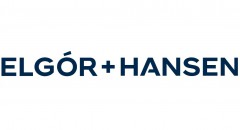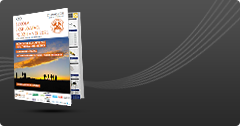International Mining Forum 2021 – Green Scenarios: Mining industry responses to environmental challenges of the Anthropocene Epoch
Informacje
Data: środa 29.09.2021
Godzina/Sala: 11:00 - 16:00 - A
Prowadzący: Gabriela Woźniak (University of Silesia), Andrzej M. Jagodziński (Polish Academy of Sciences)
Galeria zdjęć z sesjiThe XXX School of Underground Exploitation on Wednesday, September 29, 2021, our international conference from the International Mining Forum series will be held. This time the conference is focused on: "TGreen Scenarios: Mining industry responses to environmental challenges of the Anthropocene Epoch." The first edition of the IMF took place in 2002, while the last edition took place in 2019 in cooperation with Jastrzębska Coal-mine company. This year's conference will be the 15th and the first one to be held entirely on the Internet, and we invite you to follow it today on the IMF profile on LinkedIn and a particular YouTube channel. When we established the Institute of Mineral and Energy Management of the Polish Academy of Sciences to the life of the IMF years ago, we did not think that the transformation of the entire industry would take such a turn in Poland. The analysis of green scenarios for the development of whole regions will redefine the foundations of the mining industry, especially in the context of responding to the environmental challenges in the era of the Anthropocene.
In its assumptions, the IMF was a platform for exchanging scientific ideas and practical engineering solutions on the international forum with representatives of the mining industry, cooperating companies, and scientists. It also happened in subsequent editions of IMF, when we met with specialists from Poland, the Czech Republic, Finland, Germany, Ukraine, Russia, and Serbia. In 2003, however, it turned out that the organizers had to extend the IMF formula. Apart from the participants from Europe, the representatives from the USA, Canada, South Africa, Chile, Iran, Australia, and China took part in the International mining forum. It is no different today, the IMF conference, conducted entirely in English. It will connect scientists from all over the world. Its main goal will be to promote a book specially prepared for the XXX anniversary of the School of Underground Exploitation: Green Scenarios: Mining industry responses to environmental challenges of the Anthropocene Epoch. The intention of the organizers of the School of Underground Exploitation is to open it to the world by presenting national experiences, ideas, and cooperation of scientists and industry practitioners. The chapters of the book are related to natural processes basics of the broadly understood management of mineral resources and energy side effect sites, which we believe may be of interest to people worldwide.
Since 2004, the IMF conference materials have been published in print by A.A. Balkema (active in the Francis & Taylor group since 2008). The book's authors and speakers at our conference include mainly foreign representatives of science, representing, among other, the University of Wolverhampton, University of Salford, the Chair of the Severn Rivers Trust, the Wigan Projects Manager, Lancashire Wildlife Trust from Great Britain, Hasselt University from Belgium, University Darmstadt from Germany, Bio-Research & Development Growth Park St. Louis North America or the neighboring University of Ostrava, Czech Republic. The forum and the accompanying monograph are intended to present a new, based on the latest knowledge, approach to the management of post-mineral mining areas, created as a side effect during the acquisition of mineral resources, including hard coal. A significant part of the areas developed in connection with the exploitation of mineral resources consists of oligotrophic environmental islands formed by terrestrial, wetland, and aquatic habitats, which constitute unique places in the landscape that enable biodiversity enrichment. A problem that has been growing for a long time in the natural environment is the over-fertilization (eutrophication) of soil (substrate), and consequently of surface waters, as a result of commonly used artificial fertilizers, mainly in agriculture.
Nutrient-poor (oligotrophic) mineral substrates are essential elements of the habitat mosaic, especially in the urban and industrial landscape. Most of the excavation workings are places where spontaneously developing and functioning ecosystems are refuges for wild nature. Living organisms adapted to the specific conditions of poor mineral habitats colonize post-mining areas. Along with the original producers, mainly plants, the mineral post-mining areas are inhabited by numerous and various microorganisms, including bacteria and fungi. As a result of dynamic natural processes, especially adaptation, de novo, independently functioning specific ecosystems develop. As shown, the functioning of new ecosystems is the source of numerous ecosystem services, essential for the inhabitants of densely populated urban and industrial areas. In Europe's urban and industrial centers, there are areas where natural processes have resulted in a mosaic of terrestrial ecosystems and wilderness areas. The management of the poor, oligotrophic mineral terrestrial, wetland, and water habitats of anthropogenic origin should focus on enhancing the effective functioning of the novel ecosystems in the urban-industrial landscape system.
The event, conducted as a teleconference, will start on September 29, 2021, at 11:00 a.m. and will be hosted by Professor Gabriela Woźniak from the University of Silesia and Professor Andrzej Jagodziński from the Institute of Dendrology of the Polish Academy of Sciences.
| Godzina | Autor | Tytuł referatu | Video / Artykuł / Prezentacja / Link |
|---|---|---|---|
| 11:00 - 11:15 | Gabriela Woźniak - University of Silesia, Andrzej M. Jagodziński - Institute of Dendrology of the Polish Academy of Sciences, Artur Dyczko - MEERI of the Polish Academy of Sciences | Opening speech, and Introduction to the workshop |
video
|
| 11:15 - 11:45 | Anne Weeler - Severn Rivers Trust | Natural Capital the base for all human activity |
video
|
| 11:45 - 12:10 | Ian C. Trueman - University of Wolverhampton, Barbara Tokarska-Guzik - University of Silesia in Katowice, Eleanor V.J. Cohn - University of Wolverhampton | Brownfield Sites as Hot Spots of Plant Diversity |
video
|
| 12:10 - 12:30 | Jaco Vangronsveld - Hasselt University, Wiktoria Hryń, Joanna Czarnecka - Maria Curie-Skłodowska University | Mineral Soil Substrate Seed Banks: Understanding Their Role in Primary Succession and Enhancement of Habitat Recovery |
video
|
| 12:30 - 12:50 | Agnieszka Kompała-Bąba - University of Silesia in Katowice, Barbara Stalmachová - VŠB-Technical University of Ostrava, Gabriela Woźniak - University of Silesia in Katowice | Returning Coal Mine Sedimentation Tanks to Nature: Technical vs. Natural Processes Population, Vegetation and Landscape Context |
video
|
| 12:50 - 13:10 | Wojciech Bierza, Monika Malicka - University of Silesia in Katowice | Soil Enzymes, soil respiration, BIOLOG® Method analysis – a Tool to Monitor Soil-forming Processes in Coal Mine Heaps; an important Element of understanding the Post Mining Ecosystem Functioning | video |
| 13:10 - 13:30 | Remigiusz Gałka, Agata Lisiecka - WMB.EXPERT Sp. z o.o. | Novel Ecosystems Establishment in Environmental Management with Geo-informatics Tools: Remote Sensing and Machine Learning Application |
video
|
| 13:30 - 13:50 | Mike H. Champion - University of Salford, Philip James - Lancashire Wildlife Trust | Changing the Management of Post-Mining Synanthropic Sites | video |
| 13:50 - 14:10 | Lynn Besenyei - University of Wolverhampton | Returning Collieries Back to Nature in England, UK |
video
|
| 14:10 - 14:30 | Jörg Dettmar - University of Darmstadt | The possibilities of sustainable daytime tourism in an area at the boarder of the metropolitan region Rhein Main | |
| 14:30 - 14:50 | Agnieszka Hutniczak, Teresa Nowak, Agnieszka Błońska - University of Silesia in Katowice | Educational Activities in the Areas Created As a Result of Mining Operations in Silesian Province | video |
| 14:50 - 15:10 | Franco Magurno, Sylwia Uszok - University of Silesia in Katowice, Leonardo Casieri - Bio-Research & Development Growth Park | The dynamic microbilogical processes identyfied on coal mine heaps |
video
|
| 15:10 - 16:00 | Moderated Panel Discussion summarizing the session with Q&As |
 Polski
Polski
 Angielski
Angielski













































